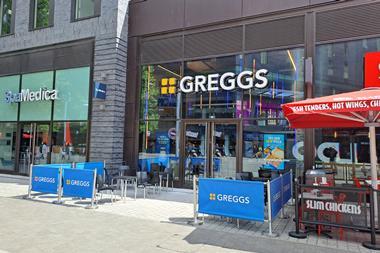
Cryptocurrency payments could become a reality on high streets - including in grocery - within two years, more than a third of owners of small and medium-sized businesses believe.
Some 46% of small firms questioned already accept “alternative” currencies, with 27% involved in schemes such as the Liverpool, Brixton, Lewes and Bristol pound to encourage local spending, the survey of about 500 SME owners by card machine provider Paymentsense found.
A further 15% said they accepted national bartering schemes such as Bartercard, with 11% taking regional gift vouchers.
Guy Moreve, head of marketing at Paymentsense, said cryptocurrency payments could become an option in the future for more established grocers, compared with smaller, online only or generally less risk-averse players.
“This group may view crypto-payments as a point of differentiation and an opportunity to target early digital wallet adopters. It could also be a branding decision for those keen to position themselves as market disruptors.”
The practical challenge for grocers thinking about cryptocurrency as a payment option was one of integration with existing business systems, he said.
“Grocers must be sure they can safely introduce cryptocurrency into their supply chains, wage and taxation structures, as well as being sure about how they’d impact regulatory and compliance responsibilities.”
The Turmeric Co, founded by Welsh international and Premiership footballer Hal Robson-Kanu, already takes cryptocurrency payments - in common with 13% of small business owners.
He believes “they are going to revolutionise global transactions for businesses at all levels”.
Robson-Kanu added: “Instantaneous settlements with no need for centralised third parties and fees are a big plus. Cryptocurrencies are a really exciting payment option.”
Moreve said it was clear that cryptocurrencies were moving swiftly towards the mainstream. But the value of unregulated cryptocurrency changed, fast, he added, which had significant implications for a small firm’s revenue security.
“For entrepreneurs in emerging sectors it might be worth the risks involved, but for others in more established or slower-moving areas it could be wiser to wait and see how things evolve over the next six to 12 months,” Moreve said.



















No comments yet